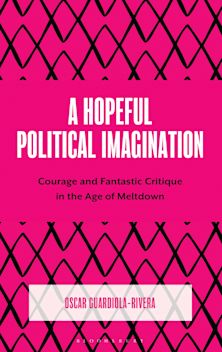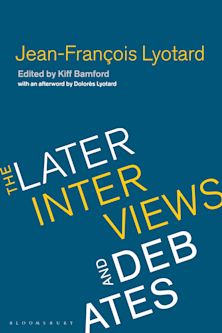- Home
- ACADEMIC
- Philosophy
- Social and Political Philosophy
- Posthuman Suffering and the Technological Embrace
Posthuman Suffering and the Technological Embrace
You must sign in to add this item to your wishlist. Please sign in or create an account
Description
Posthumanism portrays technology as an "other" to be embraced, and consequently has lost sight of the basic realities of human/technological boundary. Technology becomes a superior model of information processing to which humans aspire. Posthuman Suffering contends that we do not embrace technology to expand and augment our selves, we embrace technology so that it may embrace us. Finally and most importantly, the posthuman view reconceptualizes the human being to be made more compatible with computerized systems or possible artificial intelligences.
In the age of technology our own limitations are legitimized as unique to the human condition. Through those limitations, we can distinguish ourselves from our machines, making us superior to them via our own imperfection. Posthumanist discourse from scholars such as N. Katherine Hayles, Donna Haraway, and others, often fails to address the underlying meaning behind our technological aspirations, and actually perpetuates the belief that properly embracing technology allows us to overcome the very need to technology itself; if we possess the right apparatus to take in the world and the code which instantiates it, then the world will give us everything it has to offer. In so doing, we sacrifice the objective of experiencing the world for the object through which it should be experienced.
By revealing the theoretical and historical foundations of posthumanism through the work of Elaine Scarry, Freud, Heidegger, and Lyotard; and tracing narrative representations of failed posthuman ontologies in Thomas Pynchon's The Crying of Lot 49, Don DeLillo's White Noise and Steven Spielberg's film, AI: Artificial Intelligence, Posthuman Suffering and the Technological Embrace re-frames the core assumptions of posthumanism in terms of psychological trauma and the physicality of the human/technological interface itself.
Table of Contents
Chapter 2 Chapter 1. Inside Out and Prayers for Recognition
Chapter 3 Chapter 2. The Crying of Lot 49 and Posthuman Subjectivity
Chapter 4 Chapter 3. Humanism Through Technology
Chapter 5 Chapter 4. White Noise: Jack Gladney and the Evasion of Responsibility
Chapter 6 Conclusion. A.I. Artificial Intelligence and Posthuman Envy
Product details
| Published | 15 Jan 2009 |
|---|---|
| Format | Ebook (Epub & Mobi) |
| Edition | 1st |
| Extent | 158 |
| ISBN | 9780739144022 |
| Imprint | Lexington Books |
| Publisher | Bloomsbury Publishing |
About the contributors
Reviews
-
In this timely, provocative, and ambitious re-framing of post-humanist studies, Miccoli turns away from the alluring glint of the machine and the fetish on digital networks, attending instead to the network of social relations that undergird the human/technology interface. Poignantly, he theorizes the suffering embrace of a human body, attempting to represent her pain in and through the technologies and technological systems-both grand and mundane-that shape, and are in turn shaped by, her everyday life.
Bret Benjamin, Associate professor and Director of Graduate Studies in English at University of Albany, SUNY
-
In this rigorous and sophisticated analysis, Anthony Miccoli explores the relationship between humanity and technology, providing an informed history of posthuman studies and charting new territory....Miccoli has written a book worthy of close attention and capable of leading posthuman studies down new pathways.
The Journal of the Fantastic in the Arts



































